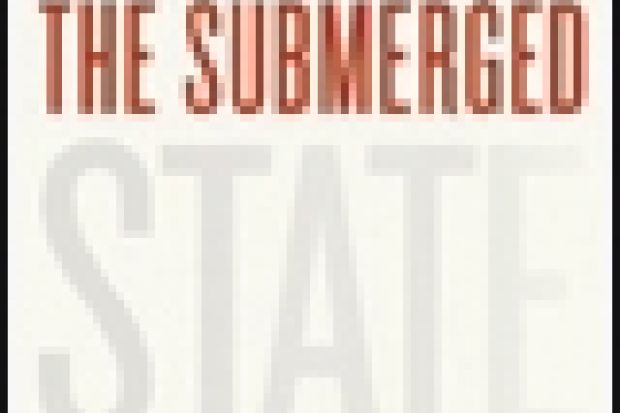In 2009, Barack Obama, the newly elected president of the US, made good on one of his most-repeated campaign promises: he passed a tax cut for 95 per cent of American workers. Eighteen months later, however, only one in 10 Americans realised that their taxes had gone down under the Obama administration; a third believed their taxes had gone up.
At this point, one typically laments the congenitally benighted US voter. How else to account for the widespread ignorance regarding an immense policy change, even when that change had been touted for a year, and when the voters themselves benefited monetarily?
In The Submerged State, political scientist Suzanne Mettler offers a more hopeful, and more convincing, explanation of voter ignorance. Changes in the mechanisms of policy have made governance less visible. For instance, the US government increasingly provides social support via tax credits, rather than by direct spending. In this way, the US spends billions subsidising home ownership, education and health insurance. But tax deductions, like those passed by Obama in the first weeks of his presidency, simply do not seem like government policy to the voters. So the public rarely rewards or punishes officials for changes to these "submerged state" programmes.
As Mettler rightly concludes, even if these programmes are economically sound, they are a disaster for democratic account-ability. But there is another problem. The benefits of the submerged state tend to accrue to the wealthiest Americans. The tax deduction for home mortgage interest goes only to those wealthy enough to buy a home, of course, but it also disproportionately rewards those buying the most expensive homes. These upward-redistributing policies are not popular with voters informed about the skew of their rewards, Mettler's research shows. But voters cannot judge the fairness of policies they barely even perceive.
How did this unequal and anti-democratic model become the standard in policymaking? The choice was in many ways a conscious one. Tax expenditures appealed to those on the Left because they allowed for some expansion of social programmes in a conservative era. They appealed to those on the Right because they lowered taxes and reduced the money available to other federal programmes.
What had been a way of reaching political consensus in the short run has, over time, made the US political system more sclerotic. Well-funded and entrenched interests are alert to any potential cut to their subsidies, and the public is rarely able to muster a powerful response to protect the common good.
In many respects, this is a heartening conclusion. If voters are irredeemably ignorant, there is little hope for democracy. If more visible policies create more engaged citizens, then there is some possibility of remaking the social safety net in the US. The first step, it seems, is to judge policies not merely by their economic or social impact but by their political effects. Does this policy empower citizens to judge its effects? Or does it hide in the shadows, apparent only to the most elite political actors? Mettler ends with a call to action, laying out a roadmap for a new progressive era that would take on what was once called "Money Power" and build a more responsive democracy. She offers an exciting prospect that stimulates hope and enjoins activism.
At times, one wishes she had gone further in converting her precise, academic tone into a more approachable style appropriate to the very broad audience that would benefit from her crucial ideas. The Submerged State is a vitally important analysis for anyone who has bemoaned the inertia and inequities of modern US politics.
The Submerged State: How Invisible Government Policies Undermine American Democracy
By Suzanne Mettler
University of Chicago Press 176pp, £29.00 and £9.50
ISBN 9780226521640 and 21657
Published 18 October 2011
Register to continue
Why register?
- Registration is free and only takes a moment
- Once registered, you can read 3 articles a month
- Sign up for our newsletter
Subscribe
Or subscribe for unlimited access to:
- Unlimited access to news, views, insights & reviews
- Digital editions
- Digital access to THE’s university and college rankings analysis
Already registered or a current subscriber? Login
